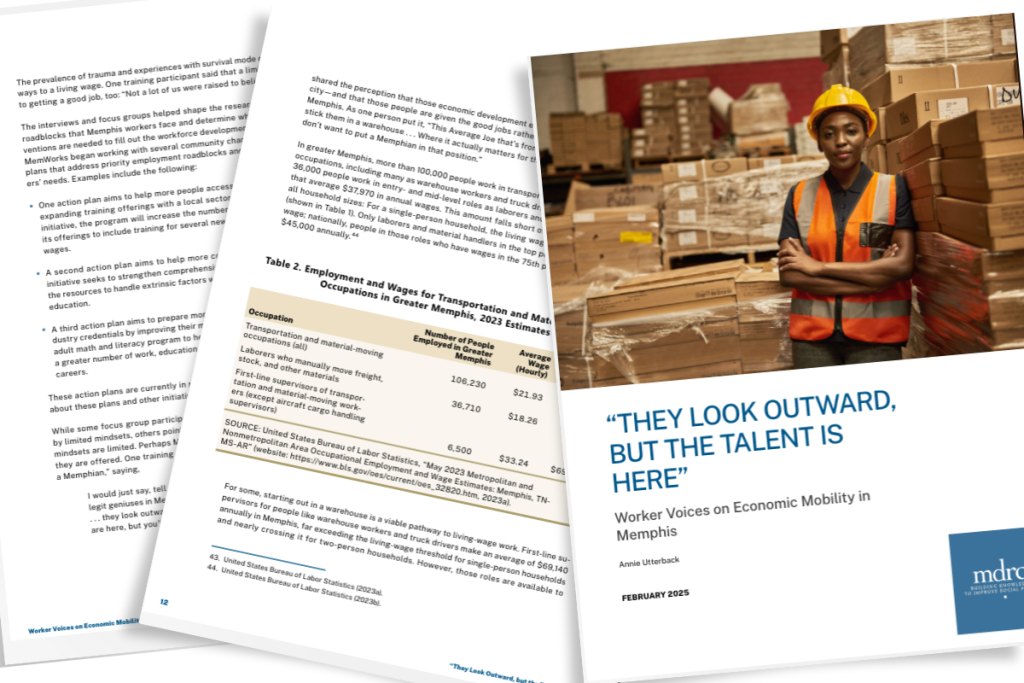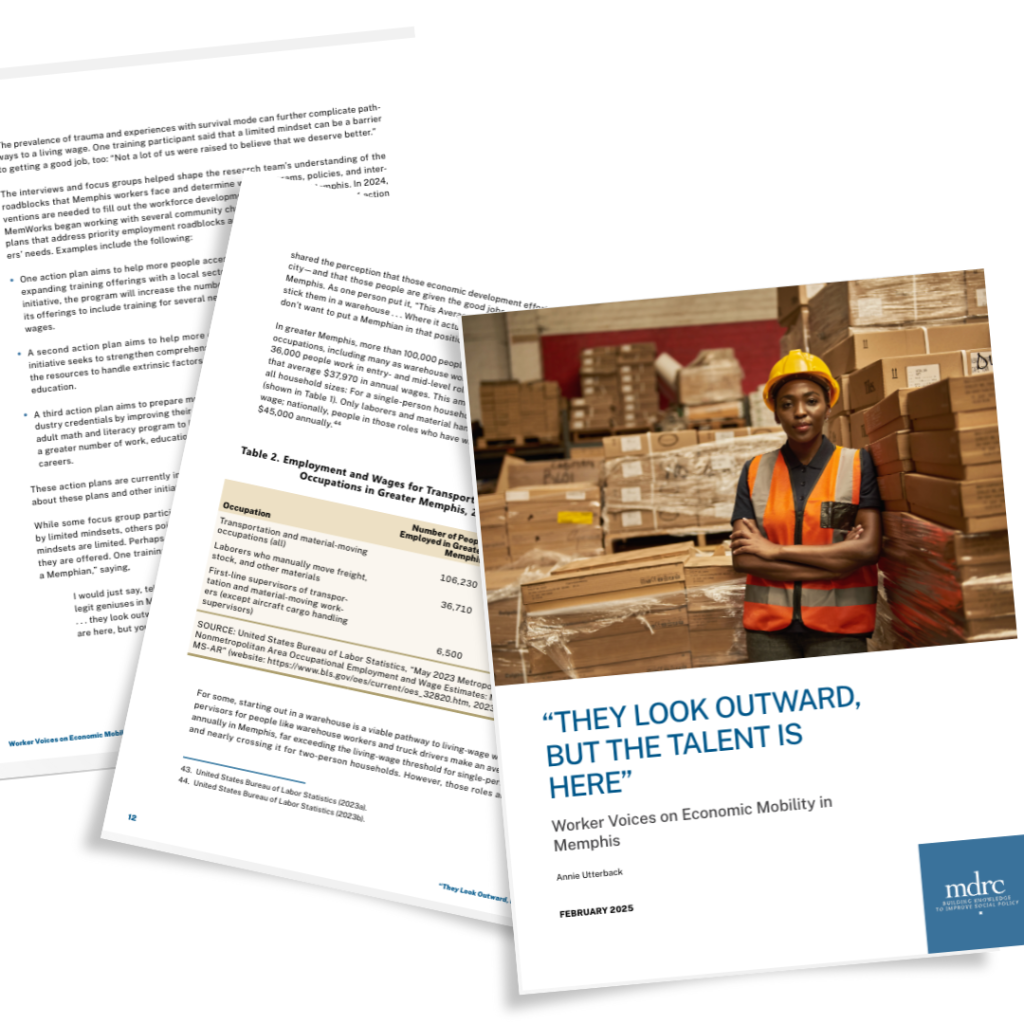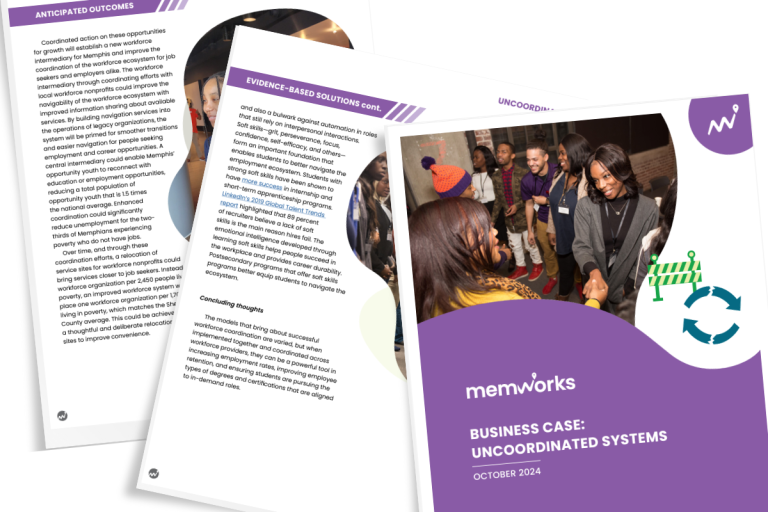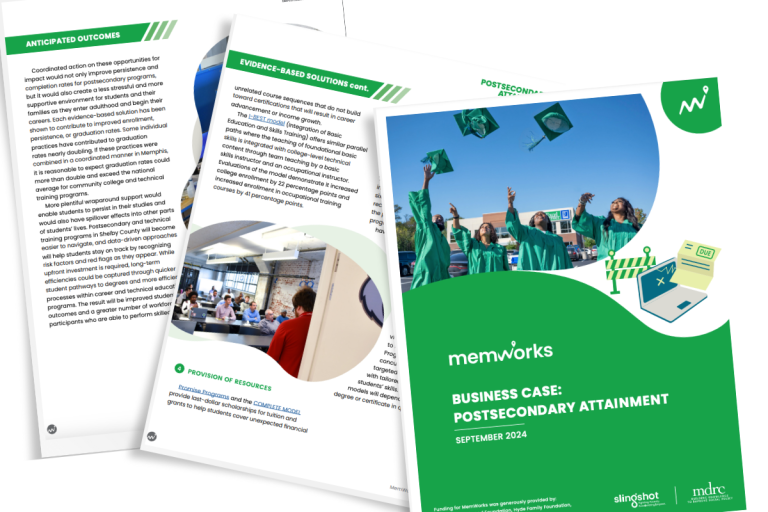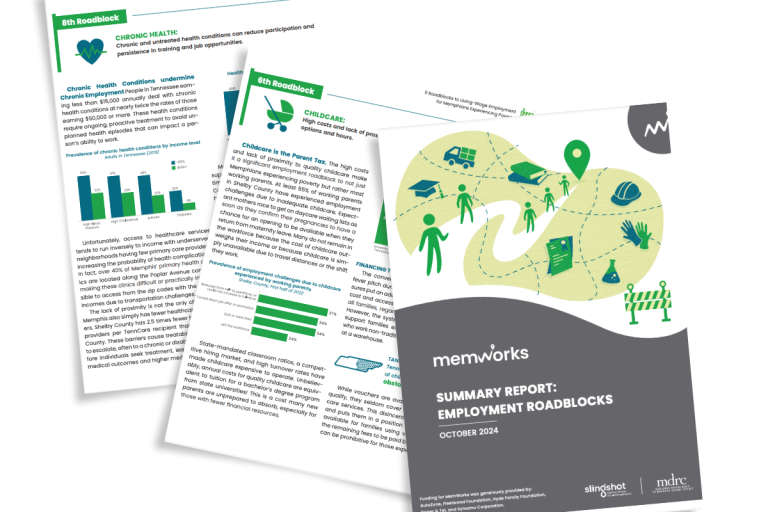“I think one of the biggest challenges to get a good job in Memphis is . . . our mindset around what a good job is. Not a lot of us were raised to believe that we deserve better.”
Work is not working for everyone in Memphis, Tennessee. 1 in 3 Memphis residents, including many workers and job seekers, are currently experiencing or at risk of living in poverty.
Our latest MemWorks report, published by MDRC, highlights the voices of Memphis workers and explores their experiences searching for living-wage work.
“They Look Outward, but the Talent is Here:
Worker Voices on Economic Mobility in Memphis”
The research team conducted focus groups with over 60 Memphis workers and job seekers to better understand existing employment pathways and areas that could be improved. Key findings include:
- Many Memphis workers struggle to access living-wage jobs. Some workers expressed concern about job quality and access, including low wages, barriers to gaining experience, trial and error career paths, and poor working conditions.
- For some Memphis workers, it can be difficult to break out of “survival mode.” This is a persistent state of feeling stressed and overwhelmed that can come from navigating lower-income work and poverty, exacerbated by the prevalence of traumatic events and basic needs instability.
- Some workers think there are few economic opportunities in Memphis. At times, workers viewed Memphis as primarily a distribution hub with limited job diversity outside of warehouse work and few opportunities to gain additional experience or be promoted. The report also highlights new programs and changes that are already underway in Memphis, showing the growing momentum in our community and possibility for real change.
Using this report to further empower your efforts
To help support your efforts, below we have outlined how different types of stakeholders might be able to use the insights from the Worker Voices on Economic Mobility in Memphis Report.
Philanthropists
Focus on targeted investments that can address barriers to education and employment. Where do your priorities overlap with employment levers (e.g., education, transportation, youth development, healthcare)? Which nonprofits could you support that address critical education and employment barriers for Memphians experiencing poverty?
Corporate Leaders
Assess your organization’s hiring and retention practices to unlock and accommodate a broader talent pool. Do your hiring requirements contain unnecessary barriers that might exclude qualified candidates from different backgrounds (e.g., college degrees for certain technical roles)? What new training program partnership can help you access new sources of talent?
Career & Technical Education Providers
Take stock of your supportive services and referral networks that enable student persistence. Do the available services address the supports that students from different backgrounds might need (e.g., transportation assistance, childcare, mental health counseling, etc.)? How can you gather additional input from students and graduates to improve support services?
Business Associations
Develop industry-specific strategies to improve pathways to living-wage work. Which employment barriers most significantly impact your member businesses’ ability to recruit and retain qualified workers? How could you facilitate partnerships between your members and workforce development organizations to create more effective employment pathways?
Local Government Leaders
Explore how policies might be contributing to the employment roadblocks faced by Memphians experiencing poverty. What types of policy adjustments could help mitigate the employment roadblocks? What new policies might be possible to provide additional services and support that help create paths through these roadblocks?
Workforce Development Nonprofits
Create opportunities to learn from workers and job seekers to assess how your programs do and do not meet their needs. How can you incorporate the experiences of workforce participants in your program design and implementation? What mechanisms can you implement to gather additional feedback from program participants, workers, and job seekers?
We encourage you to read the full report to hear from Memphis workers and discover how we can work together to strengthen economic mobility in our community.
